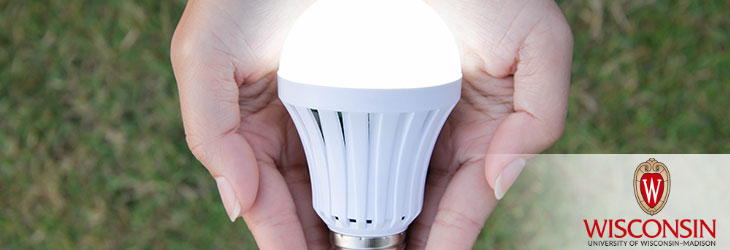Clean Technology

High Yield Method to Produce LGO from Biomass
WARF: P150101US01
Inventors: George Huber, Fei Cao, James Dumesic, Thomas Schwartz
The Wisconsin Alumni Research Foundation (WARF) is seeking commercial partners interested in developing a faster, easier and more economical method to produce the building block chemical levoglucosenone.
Overview
Levoglucosenone (LGO) is a highly dehydrated sugar typically derived from cellulose. It is an important, non-petroleum building block chemical with potential uses in a wide range of industrial processes. For example, it can be converted to 1,6-hexanediol to be utilized in the production of polyurethanes and polyesters.
Conventionally, LGO is derived from materials such as waste paper via high temperature pyrolysis. However, the process is hindered by low yield. Attempts to improve yield using expensive, toxic ionic liquids are undesirable.
Conventionally, LGO is derived from materials such as waste paper via high temperature pyrolysis. However, the process is hindered by low yield. Attempts to improve yield using expensive, toxic ionic liquids are undesirable.
The Invention
UW–Madison researchers have developed a new method to produce LGO from cellulosic biomass under mild reaction conditions. The biomass material is reacted in a mixture comprising a polar aprotic solvent (e.g., tetrahydrofuran or THF) and an acid in the absence of water. The LGO can be separated out by routine downstream processes such as distillation and evaporation.
Glucose, levoglucosan, furfural and 5-hydroxymethylfurfural also are produced in small quantities.
Glucose, levoglucosan, furfural and 5-hydroxymethylfurfural also are produced in small quantities.
Applications
- Producing LGO from biomass
Key Benefits
- High yields
- Low reaction temperature
- Outperforms harsher methods
- Easy to separate LGO from solvent and byproducts
Stage of Development
High LGO yields from cellulose have been achieved using polar aprotic solvents.
Additional Information
For More Information About the Inventors
Related Technologies
Publications
For current licensing status, please contact Jennifer Gottwald at [javascript protected email address] or 608-960-9854
- Cao F., Schwartz T.J., McClelland D.J., Krishna S.H., Dumesic, J.A. and Huber G. W. 2015. Dehydration of Cellulose to Levoglucosenone Using Polar Aprotic Solvents. Energy Environ. Sci. 8, 1808-1815.